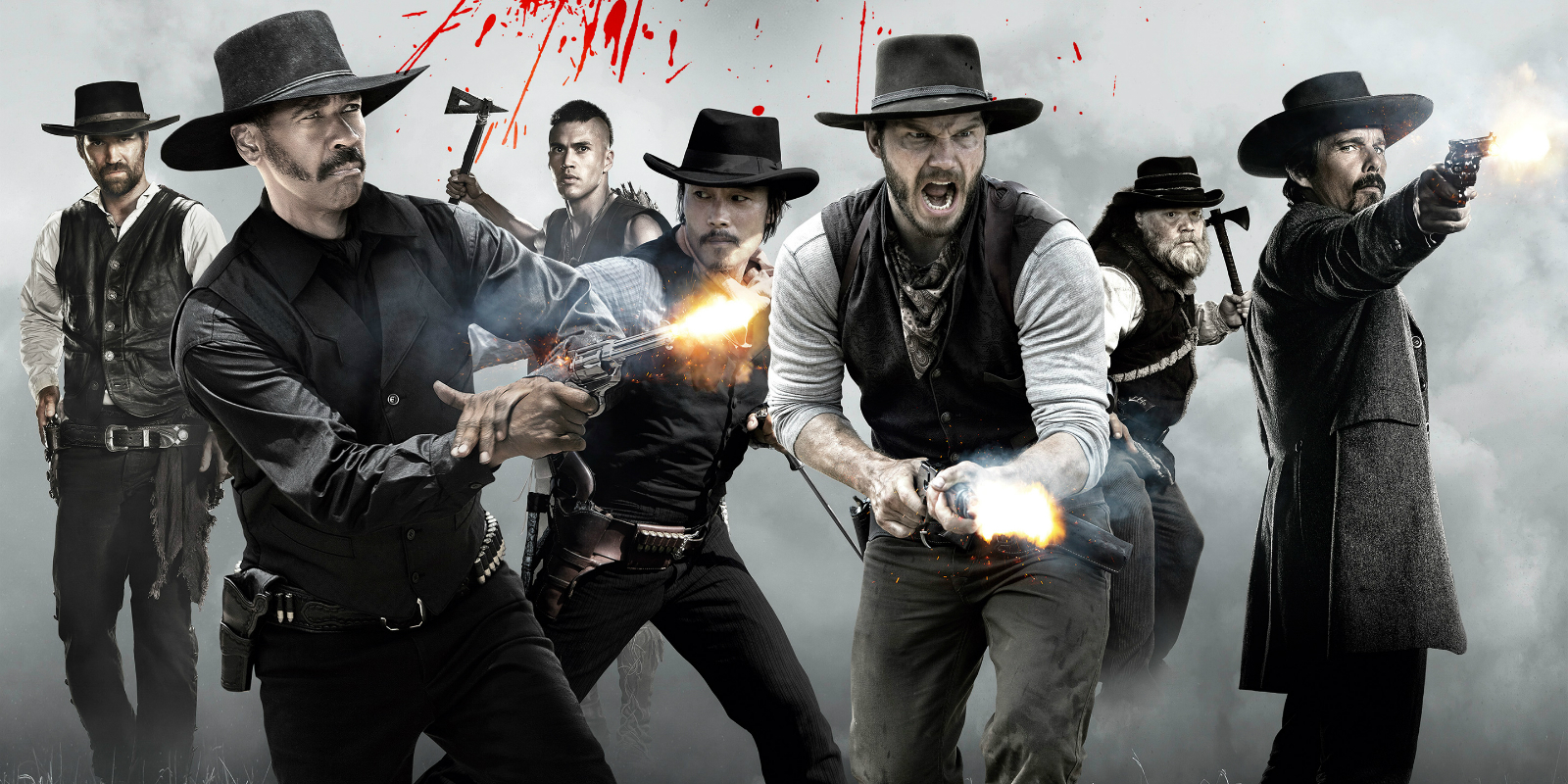8 Ways “The Magnificent Seven” Brings Back the Western
Sep 24, 2016 • Mikhail Lecaros

Sep 24, 2016 • Mikhail Lecaros

There was a time when the western genre was unbeatable, filling cinemas and television schedules with cowboy adventures appealing to every age and taste before dying down in the mid 1960’s as audiences gravitated towards the high-tech likes of James Bond and Batman. The genre’s loss of popularity in Hollywood led to a slew of low-budget Italian productions picking up the slack with their so-called “spaghetti westerns”. It wasn’t until Clint Eastwood (who made his name on spaghetti westerns) crafted what is arguably the finest post-modern western three decades later (1992’s Best Picture-winning Unforgiven) that the humble western regained some of its dignity.
Recent attempts to revive the genre, such as The Lone Ranger, and Cowboys vs Aliens have largely fallen flat, which made the announcement of director Antoine Fuqua’s The Magnificent Seven remake an oddity in and of itself. However, Fuqua’s track record (Training Day, The Equalizer) has earned him more than enough credibility for the benefit of the doubt. Indeed, a glimpse of the cast he’s assembled, headed up by Denzel Washington (who’s worked with Fuqua before), and Chris Pratt showed that this production was making all the right decisions.
Read on to see if 2016’s The Magnificent Seven is a western remake on par with the brilliant 2010 do-over of True Grit or just another failed attempt, a la Will Smith’s Wild Wild West:
The original Magnificent Seven was, itself, a remake of legendary filmmaker Akira Kurosawa’s The Seven Samurai, which swapped out the feudal Japanese setting for the wild west while ramping up the star power to interstellar levels with a cast headlined by the likes of Yul Brenner (The King and I), Steve McQueen (Bullitt), James Coburn (Our Man Flint), Charles Bronson (Death Wish), and Robert Vaughn (The Man from U.N.C.L.E.).
As directed by veteran helmer John Sturges (The Great Escape), the themes of honor, brotherhood, and sacrifice from Kurosawa’s seminal narrative worked just as well when applied to the American frontier, to say nothing of – believe it or not – comedy. Later films like The Three Amigos, Galaxy Quest, and even A Bug’s Life, have used the now-well-worn trope of a small town hiring defenders to fend off a gang of marauders.
As with many a classic western that Fuqua was a fan of growing up, moral ambiguity isn’t a factor here: The bad guys are bad, and the good guys are good – there’s no middle ground. As primary villain Bartholomew Bogue, Peter Sarsgaard (Blue Jasmine) is every mustache-twirling antagonist ever, rolled into one easily-despised package. On the opposite end of the spectrum, Washington as Sam Chisolm is the archetypal lone gunman with a moral code and a past he can’t escape who is easily persuaded into doing the right thing.
While the basic premise is the same, with a downtrodden town seeking hired gun saviors to protect them, there are some fundamental changes, such as Haley Bennett’s strong-willed Emma Cullen joining in the action after the murder of her husband (Magic Mike’s Matt Bomer). While the character names are all changed and the story takes some twists and turns that the original didn’t, there’s nothing here so outlandish as to be unrecognizable or offensive to classic film fans. At any rate, it’s miles better than any of the original’s cash-in sequels or the spinoff TV series.
Despite it being likely that many viewers will have first heard the Magnificent Seven theme from vintage Marlboro cowboy commercials, there are few pieces of music that can evoke a classic western feel like Elmer Bernstein’s iconic score. Here, in one of his last works, late composer James Horner weaves snippets of the classic theme into his new score, teasing it throughout the film before unleashing it in full over the end credits. While this is similar to the approach in Creed, where Bill Conti’s classic Rocky theme was introduced bit by bit as the hero progressed, we are never given a truly satisfying hero moment here where it feels that the titular Seven actually earn their theme.
Pages: 1 2
Mikhail Lecaros has been writing about movies and pop culture since 2012. Check out his movie podcast, Sub-Auters, and his all-out geekfest, Three Point Landing, on Spotify, Apple Podcasts, and Google Podcasts!
Input your search keywords and press Enter.
